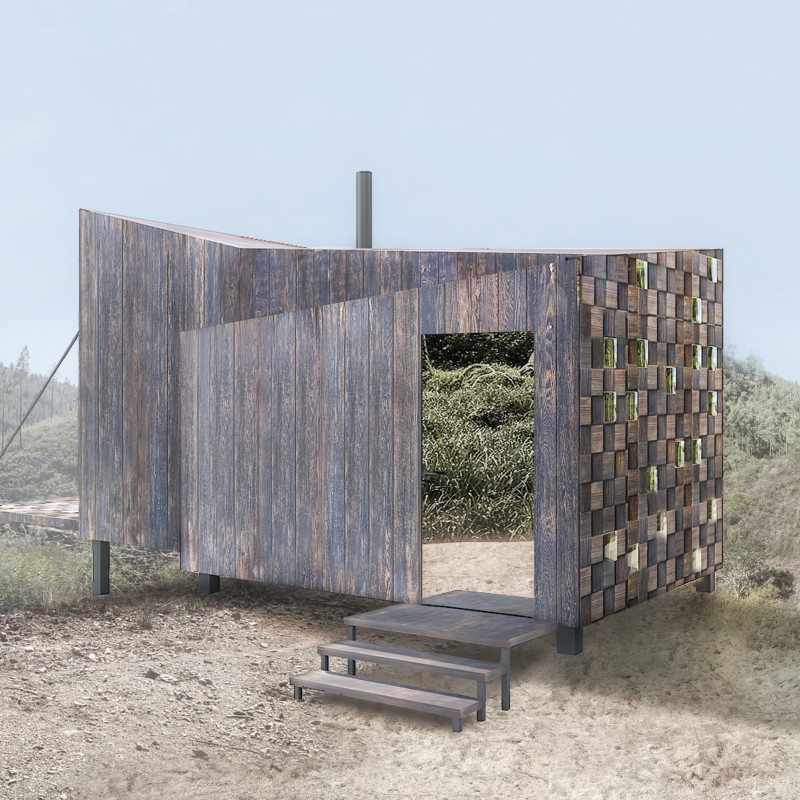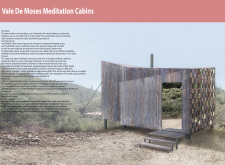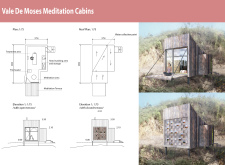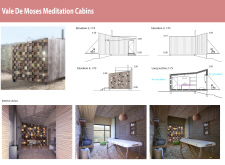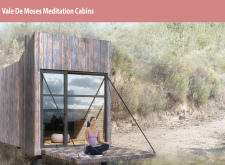5 key facts about this project
The Vale De Moses Meditation Cabins are designed to blend into their natural environment while providing spaces for personal reflection and wellness. Located in a peaceful sloped area, these cabins offer both meditation and therapy facilities. The overall design aims to create a calm atmosphere that encourages quiet contemplation and connection with nature.
Entrance Design
The entrance features a mirrored door that reflects the surrounding landscape. This design invites visitors to pause and reflect before they enter. It serves both a practical and symbolic purpose, marking the transition from the external environment to the inner space of the cabins, enhancing the sense of mindfulness.
Interior Layout
Inside, the cabins are organized into two main areas: a dedicated therapy space and a separate meditation zone. This layout allows users to engage deeply in each practice without distraction. The distinct separation of areas promotes a focused and serene environment, supporting individuals in their quest for personal wellness.
Terrace Functionality
The cabins include an open terrace that can be adjusted for different uses. This wooden platform can be lifted using a rotatable wheel mechanism, making it flexible for various activities. Integrated glass blocks allow light to come in, creating an inviting atmosphere. In the evening, illuminated glass blocks signal occupancy, fostering a connection between inside and outside.
Sustainability Considerations
The design emphasizes sustainability through several features. Solar panels on the roof contribute to energy efficiency, minimizing electricity use. Rainwater collection systems support water management, while grey water is repurposed for irrigation. The cabins are constructed with wood for finishes, supported by steel for durability and resting on a concrete point foundation, allowing them to be resilient in their setting.
Natural light and ventilation systems have been carefully integrated, improving air quality and comfort. This attention to detail enhances the experience of those using the cabins and deepens their connection to the tranquil landscape that surrounds them.


